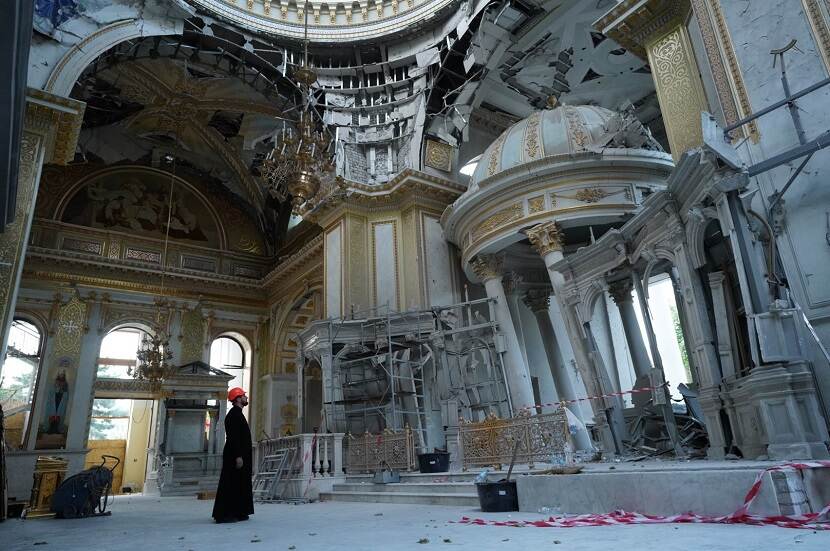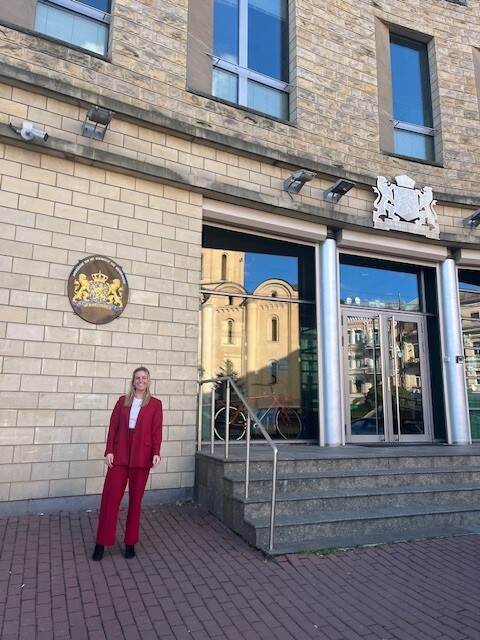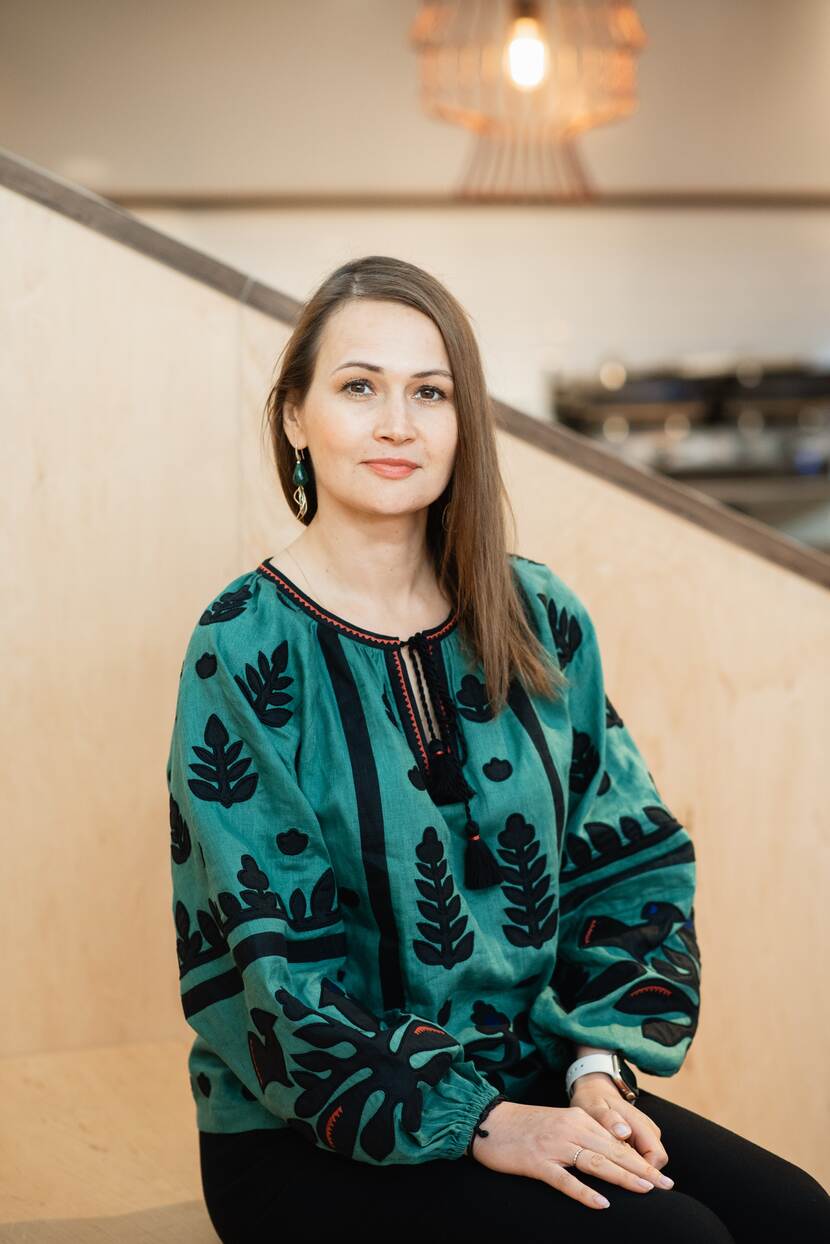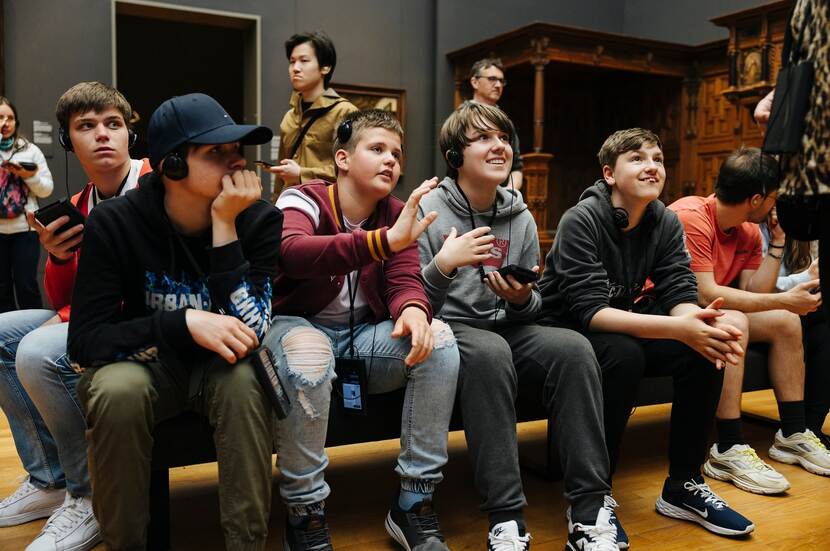Churches, museums and theatres – Russia wants to destroy everything that embodies Ukrainian culture
Weblogs
In Ukraine, 24 August is Independence Day. Since Russia’s invasion, the country has been fighting harder than ever to preserve its distinctive culture and cultural heritage. The Netherlands, including the embassy in Kyiv, supports Ukraine in this fight. ‘Russia denies Ukraine’s right to statehood. Everything that embodies Ukrainian identity, from art to language, is being destroyed.’

Ukrainians truly love art and culture. It's an aspect of life in the Ukrainian capital that is particularly striking to Tjitske Wildervanck, culture policy officer at the Dutch embassy in Kyiv. ‘The theatres here are full, and museums are also really popular among young people.’
The war has highlighted the importance of culture for Ukrainians, says Yuliia Malynovska, culture policy officer at the Ukrainian embassy in the Netherlands. ‘In Ukraine we seize every opportunity to attend cultural events and enjoy art, literature, film and dance. This helps us feel connected to our identity and offers an escape from the horrors of the war.’

Culture war
The war with Russia is not just being fought on the front lines. Wildervanck and Malynovska say that it’s also a culture war. Russia is deliberately attacking cultural targets in an attempt to erase Ukrainian culture and identity. Wildervanck: ‘A senior Russian official in occupied Zaporizhzhia recently said that it’s time to burn everything Ukrainian down to the root. And anything that isn’t destroyed they want to Russify. They do that by looting museums, but also by banning the Ukrainian language in occupied areas of the country.’
According to the Ukrainian Ministry of Culture, since the beginning of Russia’s large-scale invasion in 2022 nearly 1,100 cultural buildings such as churches, theatres, libraries, cultural centres, museums and other symbols of Ukrainian culture have been damaged or destroyed. UNESCO has been able to verify this damage in 432 cases.
Several well-known examples include the attacks on the Transfiguration Cathedral in Odesa, the library in Chernihiv and the Roman Shukhevych Museum in Lviv. In early August it was announced that the Lesia Ukrainka Museum in occupied Crimea, dedicated to the eponymous Ukrainian author and poet, had been completely destroyed. Malynovska also mentions the frescoed home of artist Polina Rayko in Oleshky, which was a unique piece of Ukrainian heritage. The house was destroyed last year after the Russians blew up the Kakhovka dam.
Russia’s attempts to conquer Ukraine and wipe out Ukrainian culture are not new. Malynovska: ‘Russia has been trying to do this for centuries.’ So it's no accident that Ukraine marks the day it gained its independence, 24 August 1991, with a wide range of cultural events. Ukraine also celebrates those who have given their lives, whether in the past or more recently, for their country’s freedom.

Support
The Netherlands supports Ukraine in its efforts to protect its cultural heritage. The Dutch organisation Cultural Emergency Response (CER) is helping to protect the collections of 140 regional museums in Ukraine. The Netherlands also supports various exchange programmes to make use of Dutch knowledge to assist the cultural sector.
Another key part of achieving justice for Ukraine, in addition to protecting cultural heritage, is prosecuting perpetrators of crimes targeting cultural objects. Cultural heritage also has a special position in the context of international law. Under the Geneva and The Hague Conventions, damaging cultural heritage is prohibited. Attacks on cultural heritage are considered war crimes and those responsible can be tried before the International Criminal Court in The Hague.
Ukraine’s Public Prosecution Service has therefore appointed three public prosecutors to focus solely on cultural war crimes. They are receiving assistance from national and international organisations to this end. Wildervanck: ‘The Netherlands supports these organisations by providing project grants and expertise, and by simply bringing together parties who might not otherwise have been in contact.’
'It’s thanks to the army that I can live freely in Kyiv, but it’s thanks to the culture that I want to stay here.’

Audio guides in Ukrainian
In the Netherlands, too, there is plenty of support for Ukrainian culture. With the help of Dutch partners, 60 dancers who were forced to flee Ukraine formed the United Ukrainian Ballet in The Hague. The company disbanded earlier this year, but its members continue to pursue their art in smaller groups With the help of Dutch partners, 60 dancers who were forced to flee Ukraine formed the United Ukrainian Ballet in The Hague. The company disbanded earlier this year when its members decided to pursue their art in smaller groups.
Yuliia Malynovska cites museum audio guides in Ukrainian as another example. ‘Museums such as the Van Gogh Museum, the Rijksmuseum, Museum Bredius and Escher in het Paleis in The Hague now all offer audio tours in Ukrainian. To Dutch people this may not seem so significant, but to Ukrainians it means a lot that such world-renowned museums are doing this. It’s a recognition of our language, which Russia has so long suppressed. I’ve seen Ukrainians walking through museums with tears in their eyes just hearing the audio guides in their own language.’
The Hague–Kyiv exhibition
Malynovska emphasises how important it is to have the support of allies when it comes to preserving Ukraine’s cultural heritage. ‘We can’t do it alone. We need all the help and expertise we can get. And the Netherlands has that expertise.’ She mentions the first foreign art exhibition in Kyiv as an example of the unique connection between Ukraine and the Netherlands. The Hague – Kyiv exhibition in Kyiv’s Khanenko Museum was opened in May this year by President Volodymyr Zelenksyy’s wife Olena Zelenska and Ukrainian foreign minister Dmytro Kuleba.
Wildervanck considers it an honour to be able to help, even in a small way, to protect Ukraine’s cultural heritage and, by extension, Ukrainian identity. ‘If there’s anywhere you can feel the importance of culture, it’s here in Kyiv. This war is about culture – it's about what differentiates Ukraine from Russia – and that’s why my work is so important. As someone at the embassy put it: it’s thanks to the army that I can live freely in Kyiv, but it’s thanks to the culture that I want to stay here.’